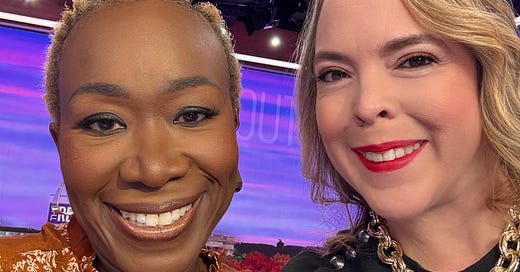For much of my career, I was firmly convinced that the media was nothing short of an adversary—a realm rife with spin, distortion, and betrayal. My formative years in Republican conservative politics and later in national security ingrained deep-seated skepticism in me. I learned early on that every word spoken in public could be twisted. I watched Cabinet-level leaders and even a former Vice President—figures I worked with directly—have every comment scrutinized and dissected, their words managed with painstaking care. In that environment, I never once considered talking to the media, and the nature of my national security roles also meant that I was strictly not to engage.
Yet, fate intervened. I remained silent—until my principles compelled me to step forward and take a stand. In 2020, I stepped into the spotlight, determined to share my insights, opinions, and experiences—even if it meant challenging the narratives I had once dismissed. That was when my journey from guarded observer to engaged participant began. Initially, my entry into the media world was laced with apprehension. I viewed it as a minefield where every misstep could lead to scandal or misrepresentation. However, as I participated in more interviews and engaged in debates, I discovered an unexpected truth: the media, despite its many flaws, possesses a unique power to educate, inform, and even unite. It became clear that when approached with rigor and a commitment to truth, this medium could shine a light into the dark corners of our collective experience.
The process was not always easy. There were moments when the exposure was grueling, and the raw truth made us all uncomfortable. Yet, it is precisely in those moments of discomfort that growth happens. I began to see that facing hard questions head-on and challenging entrenched beliefs could spark conversations that led to deeper understanding. My skepticism gradually gave way to cautious optimism—a recognition that the media, far from merely a tool of distortion, could also be a platform for genuine education and progress.
Joy Reid: A Beacon of Fearless Discourse
Few experiences have been as defining as my time as a guest on Joy Reid's show, The Reid Out. Joy's fearless discourse and unwavering commitment to truth reshaped my understanding of what the media could be. Her show was more than just a program—a battleground for ideas, a place where the truth was spoken, scrutinized, and celebrated. The news of Joy Reid's departure from MSNBC recently rocked the media world. The network's decision to cancel her show this month is a tremendous loss for them and a disheartening signal to all who believe in honest, transformative dialogue. Joy's tenure on MSNBC was marked by her relentless willingness to tackle topics that others feared to address. Whether it was confronting the painful legacies of race or dissecting the narratives that shape our national consciousness, she consistently pushed boundaries. I recall her often urging me, with a fervor that still echoes in my memory, "Please go take back your Republican party… get it back on track to its true conservative roots for the sake of the greater good of our country."
It isn't just her fearless discourse that left an indelible mark on me. Joy Reid was also the first person in the media to acknowledge my identity as a Latina. On her show, when I spoke about my Mexican mother and my roots, she didn't shy away from highlighting that aspect of who I am. That recognition was both pivotal and deeply personal—especially for someone who as a conservative had long been pigeonholed by preconceived notions. Yet, it also struck a nerve with extremists from both sides of the political spectrum, igniting a backlash that illustrated how polarizing honest identity can be in our divided times.
My journey from a truck driver's daughter, raised on the border by a working class family consisting of a hardworking all American boy and a Mexican immigrant, to a proud graduate of the University of Pennsylvania who ends up working as a national security advisor in the Trump 1.0 White House along the way, is a testament to perseverance. I worked incredibly hard to get there, overcoming obstacles that many in more privileged circles could scarcely imagine. Despite excelling in public school and graduating at the top of my class, my first year at Penn was a brutal reality check. Surrounded by peers who had been groomed in the refined environments of elite boarding schools, I constantly questioned if I truly belonged. And yet, that struggle forged my determination and resilience—a determination that found a powerful outlet in my decision to speak out publicly later in life. Why do I mention this? Because despite my political differences with Joy’s views, I saw a Harvard educated woman sitting across the table from me who respected me and understood my journey.





